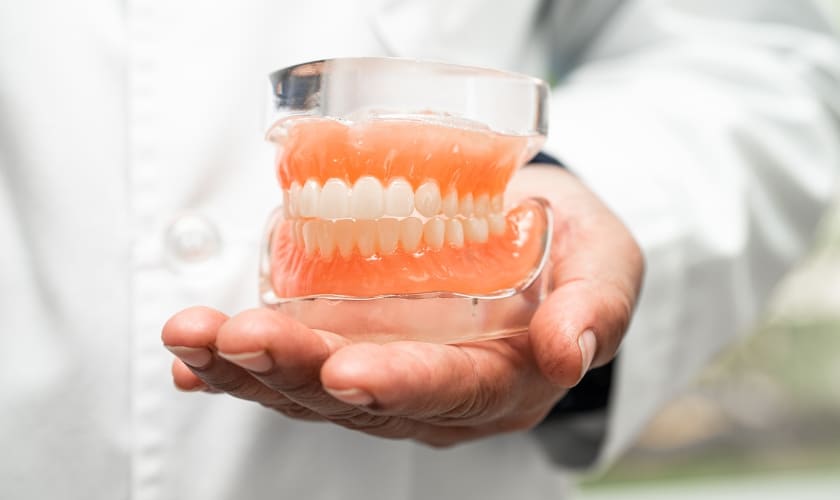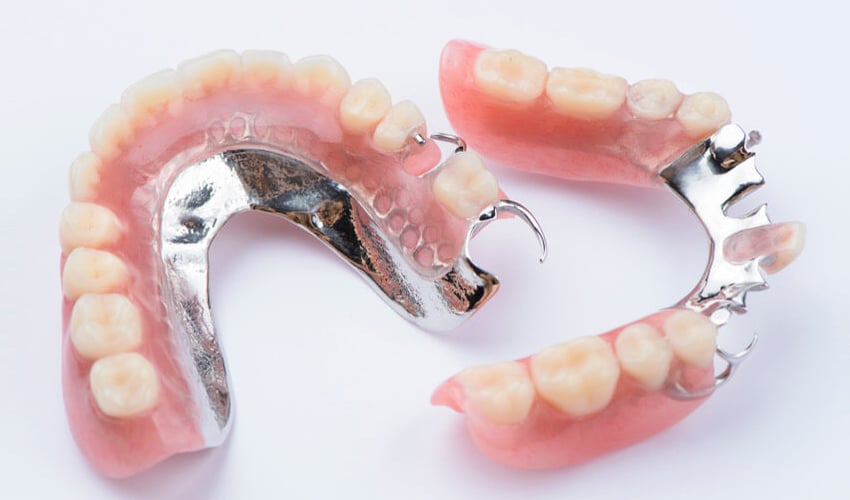A smile makeover can significantly enhance your personal confidence and appearance. A bright, healthy smile boosts your self-esteem and makes you feel more attractive. For those struggling with missing teeth, dentures serve as a transformative option. They can restore your smile and improve your overall look.
Many people feel self-conscious about their teeth, and dentures provide a practical solution. They can help you regain your confidence and allow you to smile freely. This blog will explore how a denture can positively impact your appearance and well-being.
Understanding Dentures
A denture is a removable appliance designed to replace missing teeth. They can be categorized into two main types: complete and partial dentures. Complete dentures replace all teeth in the upper or lower jaw. Partial ones fill gaps left by one or more missing teeth while keeping the remaining natural teeth. Immediate options are placed right after tooth removal, allowing for a smoother transition.
Modern dentures use advanced materials like acrylic resin and porcelain, which mimic the appearance of natural teeth. Advancements in technology have improved the fit and comfort of dentures. Customization options ensure that they match your facial structure and natural tooth color.
Additionally, digital imaging allows dentists to create precise, well-fitting dentures. With these advancements, a denture now provides a more natural look and function than older models.
The Psychological Impact of a Smile
Your smile holds great power over your personal confidence and social interactions. Studies show that a healthy smile can significantly boost self-esteem.
According to a survey by the American Academy of Cosmetic Dentistry, 99% of adults believe a smile is an important social asset. In fact, 74% of people think an unattractive smile can hurt a person’s career success. When you feel good about your smile, you are likelier to engage with others and share your joy.
The link between dental aesthetics and mental health is strong. Individuals with visible dental issues often feel embarrassed and tend to smile less. This leads to reduced social interactions and isolation.
Conversely, people with well-maintained smiles tend to radiate confidence and positivity. They often enjoy more fulfilling personal and professional relationships. You can reclaim your confidence by addressing dental concerns with solutions like dentures. A smile makeover can lead to improved mental well-being and a more vibrant social life.
How Do Dentures Enhance Facial Aesthetics?
A denture plays a vital role in enhancing your facial aesthetics. Missing teeth can cause your facial structure to change. Over time, this can lead to a sunken appearance and sagging skin. Dentures help restore your natural facial contours, giving you a more youthful look. They provide essential support to your lips and cheeks, enhancing your overall facial symmetry.
Properly fitted dentures can improve your smile’s appearance, making it more inviting. With a denture, you can regain the confidence to express yourself through your smile. Beyond aesthetics, dentures also contribute to functional improvements. They assist in eating and speaking, which are essential for daily life.
Many people find it difficult to eat and speak clearly when their teeth are missing. A denture restores these functions, allowing you to enjoy meals and communicate more effectively.
Moreover, the psychological benefits of wearing a denture are profound. You become more social and engaging when you feel comfortable with your appearance. You are likely to smile more often, which creates positive interactions. This cycle of confidence and social engagement can significantly improve your quality of life. Investing in dentures means investing in your overall appearance and well-being.
Choosing the Right Dentures for You
Selecting the right ones is essential for achieving the best results. First, consider your individual needs. Do you need complete or partial ones? This decision depends on how many teeth you have lost. Next, think about your lifestyle. If you have an active lifestyle, you may prefer more durable options.
Consulting with a dental professional is crucial. They can guide you in choosing the most suitable type of dentures. Your dentist will assess your oral health, discuss your goals, and help you make an informed choice. A proper fit is essential for comfort and function. Ill-fitting dentures can cause discomfort and lead to oral health issues.
Ask your dentist about customization options. Many modern dentures can be tailored to match your natural teeth and facial structure. This personalization enhances both comfort and appearance.
Also, consider how much maintenance you’re willing to commit to. Some denture types require more upkeep than others. Discuss these factors with your dentist to find a solution for your lifestyle and budget.
Caring for Your Dentures
Proper care for your dentures is essential for longevity and comfort. Start by cleaning them daily. Use a soft-bristle toothbrush and a non-abrasive cleaner designed for dentures. Avoid using regular toothpaste, as it can scratch the surface. Rinse them after every meal to remove food particles.
Soaking them overnight in a denture cleaner can help keep them fresh. This practice also prevents staining and odors. Avoid exposing dentures to extreme heat, as this can warp their shape. Store them in a container filled with water or a soaking solution when not wearing them.
Be aware of common mistakes to avoid. Do not use bleach or abrasive cleaners, as these can damage your dentures. Also, avoid using hot water when cleaning, as it can cause warping. Regular dental check-ups are important for maintaining oral health. Your dentist can assess the fit and condition of your dentures and make adjustments as needed to ensure comfort and functionality.
In summary, a denture offers a powerful solution for smile makeovers. They can transform your appearance, confidence, and social interactions. Properly fitted dentures restore facial aesthetics and improve your quality of life. They enhance both function and comfort, allowing you to eat, speak, and smile easily.
If you are considering a smile makeover, consult our dental professionals. We can guide you in choosing the right ones and help you achieve the smile you desire. Embrace the opportunity to transform your look and boost your self-esteem with dentures. A confident smile can truly change your life.






